Creativity is more than just a hobby—it’s a path to personal growth and self-discovery. In this article, I share steps and tips on how to embark on your own creative journey, no matter your age or experience level. Learn how to identify your creative passions, set meaningful goals, and find inspiration along the way. Ready to transform your life and unleash your creative potential? Read on to discover how you can start your creative journey today!

Disclaimer: This post may contain affiliate links, which means I’ll receive a commission if you purchase through my links, at no extra cost to you. I only recommend products I would use myself. Please read the full disclosure for more information.
Unleashing Your Creative Potential: All You Need to Know to Embrace Your Journey
Are you currently on a personal journey?
Personal journeys are fantastic for self-discovery and personal growth. They provide a structured path to help you stay focused and achieve your goals. They can be transformative and enlightening, helping you gain deeper insights into your passions and strengths, leading to a more fulfilling and purpose-driven life.
I’m on a creative journey and while I often talk about it in my blog, I’ve yet to discuss how to start one. So, here it is!
This article outlines steps to help you begin a creative journey. But first, let’s answer some questions most people have about creative journeys:
What Is a Creative Journey and Why Should I Care?
A creative journey involves exploring and developing creative abilities and expressions. They are perfect for uncovering hidden talents, developing new or honing existing creative skills, or managing stress and enhancing mental health.
Who Are Creative Journeys For?
Creative journeys are for anyone who wants to go on one. You don’t need to have skill or talent and you don’t need to be a ‘highly creative’ person.
A creative journey is for anyone of any age interested in, for example, self-reflection, learning something new, or expanding creativity.
How Long Will My Creative Journey Take?
This journey is about growth and experimentation, not perfection. It should take as long as it needs to reach your goals – weeks, months, or even years. Don’t feel like you need to rush through.

Ready to get started? Keep reading for a step-by-step guide to unleashing your creativity.
5 Steps to Start a Creative Journey
Step 2: Set Clear Goals and Create a Routine
Step 3: Learn, Experiment, and Find Inspiration
Step 4: Join a Community and Seek Feedback
Step 5: Document Progress and Stay Motivated
Step 1: Identify Your Passion
If you already know your passion and want to focus on one creative activity to hone your skill or experiment with new techniques, feel free to jump to Step 2.
If you’re like me and have trouble narrowing down your passions, or you don’t know exactly what yours is, that’s okay.
The goal of your creative journey could be to identify your passion. In that case, you can explore many different creative activities at once.
Here are some tips for identifying your creative passion:
- Try various activities in several creative fields to see which one(s) you enjoy most. You can overlap your creative activities and explore them simultaneously. To incorporate activities such as writing, art, and dance into your life at the same time, you could, for example:
- Start a nightly journal.
- Take a local or online art class. Or buy cheap art supplies from your local discount store and watch videos on YouTube to learn techniques.
- Incorporate dancing into your next home workout.
- Allow yourself time to think about the activities that bring you joy and make you lose track of time. Cut out the activities that don’t work for you.
- Use starter or beginner kits before spending money on expensive supplies. I like getting them on sale or clearance at my local arts & crafts store. I also had success with art kits found on Amazon. Here are a few I’d recommend in various creative areas to help get you started, if you are interested:






Step 2: Set Clear Goals and Create a Routine
It helps to have a vision of what you want to accomplish by the end of your creative journey to keep you focused and motivated. This could be a long-term vision that may change over time as you learn more about yourself and your desires.
In the short term, set small goals to build momentum and confidence.
Here are a couple of examples of visions and goals to help you get started on your own:
Creative Journey Vision and Goals
Example #1
Vision: I’ve found my creative passion and a healthy outlet to relieve stress, release negative emotions, and foster a sense of inner peace and well-being.
Goals:
- Identify and try at least 5 creative activities or hobbies that interest me each month/3 months/year.
- Track my progress in each activity and narrow it down to the one that I enjoy most.
- Commit at least 30 minutes a day or 5 hours a week to engage in my passion.
Creative Journey Vision and Goals
Example #2
Vision: I’ve mastered watercolour painting / playing the ukulele and I can create a watercolour painting I’m proud of / play a recognizable song.
Goals:
- Structure my learning with a course or a dedication to try new styles and techniques at least every 3 months.
- Commit to at least 5 hours a week to practice.
- Seek feedback or find a community to learn from, get inspired, and grow.
Of course, you should allow yourself time to achieve these goals. That means setting aside dedicated time and space daily or weekly to progress in your creative journey and having realistic expectations about the time it takes to build skill.
Make your creative journey time part of your routine so that you stick to it and start to see progress. Also, cut yourself slack if you need to adjust your timelines for achieving your goals.
Sometimes we set timelines that are too ambitious to begin with, and sometimes life gets in the way. In either case, go easy on yourself and keep enjoying the process, however long it takes.
This is your journey. You can stop it anytime if you feel it’s not serving you.

Step 3: Learn, Experiment, and Find Inspiration
Building foundational skills in your chosen creative activity not only helps you improve and stay motivated but also:
- Boosts confidence
- Enhances creativity
- Provides a solid base for exploring more advanced techniques and styles.
Here are some tips for building a foundation in any creative area:
- If you can afford it, sign up for a class, course or workshop in person or online. If not, watch videos on YouTube or social media or look out for free workshops in your area.
- Read books specific to your creative area, instructional books, books on creativity in general, and biographies of famous artists.
I highly recommend reading The Creative Act: A Way of Being by Rick Rubin.
- Experiment with different techniques, styles, mediums, and methods. Practice.
- Visit places that support your creative activity, such as a concert, museum, art gallery, craft show, hobby store, etc..
- Spend time outdoors to connect with nature and rejuvenate your mind.
Step 4: Join a Community and Seek Feedback
Connecting with others in your creative field or others on a personal journey is a fantastic way to gain inspiration, receive encouragement, find motivation to keep going, and get support in overcoming challenges.
If the idea of making new connections and opening up about a potentially vulnerable part of yourself sounds intimidating, you could try the following:
- Share your intentions and progress with a trusted friend or family member.
- Create a separate social media account with a fake name to:
- Share your work and seek feedback.
- Join online groups or chats to share ideas and ask for tips and solutions.
- Participate in online challenges with a like-minded community.
- Start an anonymous blog to share your journey and progress and to seek feedback.
- Collaborate with a friend or fellow creative on a small project.

Step 5: Document Progress and Stay Motivated
When you feel frustrated or uninspired, having a record of your ideas, inspirations, and reflections to look back on can help you get back on track. Keep a journal to track your development or a portfolio to showcase your work. Capture, for example:
- Your vision and goals
- Things you learn and progress you make
- Challenges you participate in and their results
- Setbacks you experience and how you move forward
- Successes you have and how you celebrate
Enjoy the Creative Process
Embarking on a creative journey can be a transformative experience, offering a deeper understanding of yourself and your passions.
Stay open to learning, be patient with yourself, and celebrate your progress.
Experiment, take risks, and allow yourself to make mistakes. Keep going even when things don’t go as planned.
Remember though, stop doing the creative activities that leave you drained, stressed or anxious. Continue with the activities that make you feel energized, relaxed, or yearning to learn and do more.
Most importantly, enjoy the process. While it’s a good idea to know where you’re going, it is after all, about the journey and not the destination.
Good luck on your journey to personal growth, self-discovery, and reaching your creative potential.
Don’t miss out on new postings at The Sky Is Pink! Leave your email and you’ll be notified when a new article is available to read. That’s it. We won’t email you about anything else.
Other Articles
- 10 Fascinating Facts About Art from Neuroscience
- How to Start a Creative Journey
- Creativity and Mindfulness: The Surprising Connection and Fascinating Benefits
- Top 3 Places to Maximize Inspiration and Spark Your Creative Flow
- Enrich Your Creative Imagination with the Art of Observation
- Drawing a Blank? Tips for Generating Ideas and Selecting Creative Subjects
Leave a comment below to ask questions or let me know how your creative journey is going!

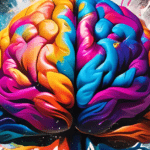

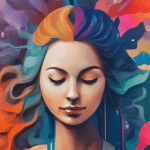
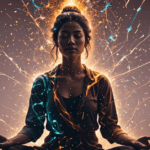
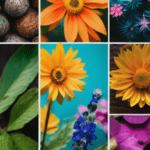
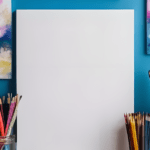
Hi Christina!
Love the progress of your site.
Are you familiar with the book The Artists Way by Julia Cameron.
Its a great workbook tool!
Believe it will resonate with you.
Thank you! I am not familiar with that book. I’ll check it out. Thanks for the suggestion and support!